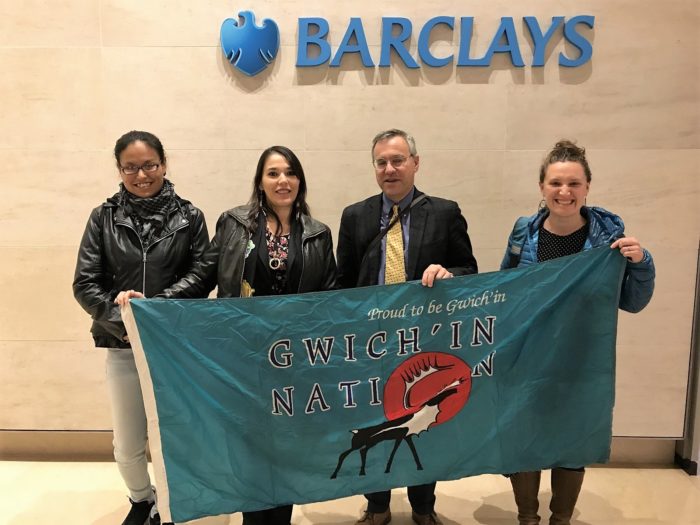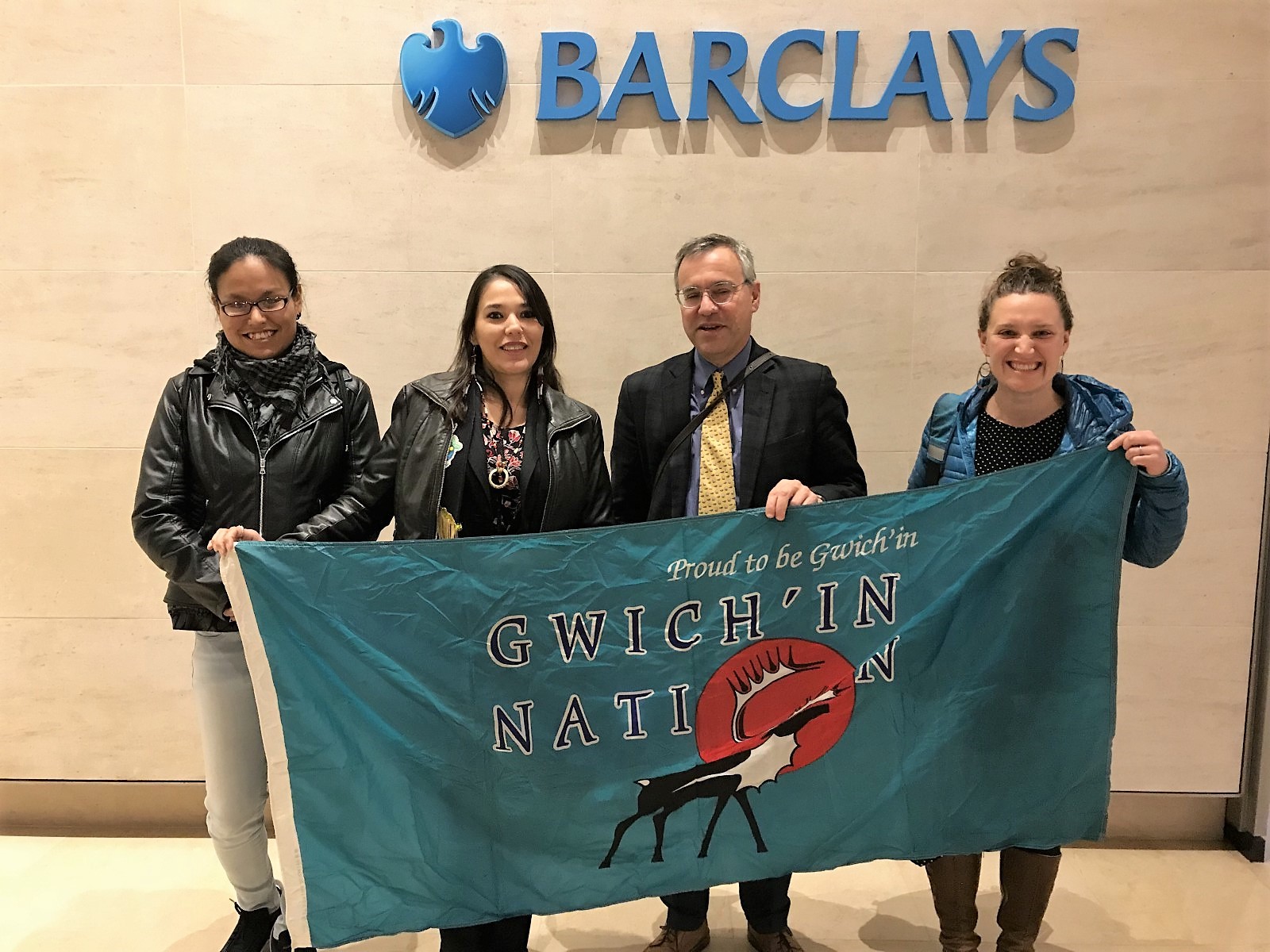This case study was written by Bernadette Demientieff (Gwich’in Steering Committee), Ben Cushing, Gabby Brown, and Cara Bottorff (Sierra Club) for our latest bank report card, Banking on Climate Change: Fossil Fuel Finance Report Card 2019.
The Arctic National Wildlife Refuge is as iconic an American natural ecosystem as Yosemite or the Grand Canyon. Established in 1960 by then-President Dwight D. Eisenhower, it has protected and sustained a diverse wildlife population — including polar bears, caribou, peregrine falcons, snowy owls, and many others — as well as the lives and culture of the Gwich’in people, who have depended on the land for thousands of years.1
But now it’s under siege by the Trump administration, which is intent on opening the Arctic Refuge’s 1.6 million-acre coastal plain to drilling of its oil and gas reserves. An unrelated provision opening the Arctic Refuge for drilling was included in the Tax Cuts and Jobs Act, signed into law in December 2017, and now the Trump administration is pushing to sell off the coastal plain on an accelerated schedule.2
Warming twice as fast as the rest of the planet, the Arctic is ground zero for climate change.3 If the Arctic Refuge is opened to drilling, the projected extraction through 2050 would release the equivalent of the annual carbon emissions from over 50 coal plants.4 When you consider the methane emissions this drilling would cause, the outlook is even worse. These greenhouse gases will only worsen climate impacts in the melting Arctic and abroad. Drilling in the coastal plain also threatens the human rights of the Gwich’in people, who depend on the Porcupine caribou herd that migrates through the Arctic Refuge for 80 percent of their food supply.5 Any disruption of the coastal plain or the caribou would pose an existential threat to their food security and way of life.

Since the passage of legislation opening up the Arctic Refuge, major banks have been under increasing pressure from Indigenous rights groups, environmentalists, and investors to preemptively reject financing for these destructive activities. In May 2018, a group of institutional investors representing more than $2.5 trillion in assets sent a letter to 30 leading banks urging them not to invest in drilling or oil exploration there.6 Since then, representatives from the Gwich’in Steering Committee have held meetings with banks to detail the risks associated with financing Arctic drilling.7
In response, both Barclays and NAB have updated their environmental policies to recognize the unique environmental and human rights risks associated with drilling in the Arctic Refuge.8 A number of European banks have gone even further, ruling out project or corporate-level financing for these activities. HSBC, BNP Paribas, and Société Générale have made commitments to proactively restrict financing for oil and gas production in this region.9However, no U.S. bank has yet publicly committed not to finance the destruction of the Arctic Refuge.
“Drilling in the Arctic Refuge would permanently destroy the primary food source of the Gwich’in people, our culture, and our way of life. Now we must call on oil companies and the banks that fund them to stand with the Gwich’in and leave this pristine and fragile place intact. The survival of my people depends on it.”
— Bernadette Demientieff, Executive Director of Gwich’in Steering Committee
- “About the Refuge,” U.S. Fish & Wildlife Service, last updated 10 April 2013; “Refuge Features,” U.S. Fish & Wildlife Service, last updated 21 August 2012.
- “Remarks by President Trump at Signing of H.R. 1, Tax Cuts and Jobs Bill Act, and H.R. 1370,” The White House, 22 December 2017.
- Brooks Hays, “NOAA: Arctic Warming at Twice the Rate of the Rest of the Planet,” United Press International, 12 December 2018.
- Kelly Trout and Lorne Stockman, “Drilling Towards Disaster: Why U.S. Oil and Gas Expansion Is Incompatible With Climate Limits,” Oil Change International, January 2019. Greenhouse gas estimate converted to coal plants using the EPA’s greenhouse gas equivalencies calculator: “Greenhouse Gas Equivalencies Calculator,” U.S. Environmental Protection Agency, last updated December 2018.
- “Caribou People,” Gwich’in Steering Committee, accessed January 2019.
- Investor Arctic National Wildlife Refuge Letter, Sierra Club, 14 May 2018.
- Bernadette Demientieff, “Gwich’in Leaders Travel to New York to Tell Banks: Defend the Arctic Refuge,” Medium, 29 October 2018
- “Barclays Energy and Climate Change Statement,” Barclays, 14 January 2019; “Sustainability Report 2018,” National Australia Bank, 2018.
- “Banks That Ended Direct Finance for Arctic Oil and/or Gas Projects,” BankTrack, accessed January 2019.
